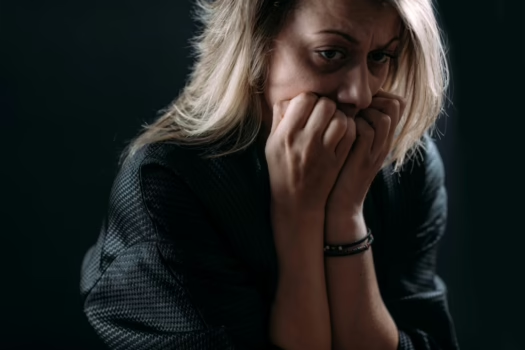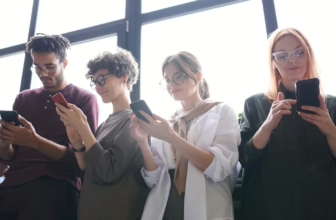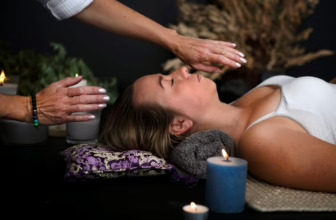Recovery isn’t a straight line. It doesn’t come with a manual or a deadline. For women navigating the complex layers of mental health challenges or addiction, the path can feel overwhelming, especially in a world that often tells them to tough it out or handle it all alone.
But the truth is, no one heals alone. And no two recoveries look the same.
What’s changing now, though, is how women are approaching their healing. Instead of waiting for the perfect moment or the “rock bottom,” more women are reaching for tools—small, tangible practices and resources—that help them feel a little more grounded, a little more understood, and a lot more in control of their journey.
Healing Is Personal—So the Tools Should Be Too
The most powerful thing about recovery today is that it’s becoming more flexible. There’s no longer one blueprint or one “right” way to get better. Instead, women are finding that when they build their own toolbox, full of resources and tools for their mental health that reflect their life, their past, and their goals, healing feels less like a task and more like a transformation. Some tools are internal. Others are communal. All of them matter.
Journaling: A Private Place to Process
For many women, the first real moment of clarity doesn’t come in therapy—it comes on paper. Journaling can be a way to release what’s been bottled up, track patterns, and make sense of emotions that otherwise feel tangled.
It doesn’t have to be poetic. It doesn’t even have to be daily. But having a place to write freely, without judgment, without filter, can create space between the thought and the reaction. That space is often where the healing begins.
Prompt-based journals, mood trackers, or even video journaling can be just as powerful for women who don’t connect with traditional pen-and-paper. The tool isn’t what matters. It’s the act of reflection and return.
Peer Support Groups: The Power of “Me Too”
Few things are as healing as hearing someone say, “I get it.” Peer support groups create a space where women don’t have to explain the shame, the fear, or the guilt. They can just show up as they are—and be met with nods of understanding, not judgment.
From 12-step meetings to trauma-informed women’s circles to online recovery groups tailored for mothers, queer women, or women of color, the range of peer-led spaces is growing. That means more women can find support that reflects their identity and experience.
These communities offer more than just conversation. They offer accountability. Celebration. Friendship. And for many women, they’re the first time someone really listens—and sees them.
Therapy That Adapts to You
Therapy isn’t one-size-fits-all anymore. That’s a good thing because women’s mental health is shaped by so many unique factors—trauma, body image, hormonal shifts, family dynamics, cultural expectations, and more.
Today, more therapists are trained in adaptive and integrative approaches. That might mean considering EMDR for trauma in San Jose, CBT for intrusive thoughts in Miami, or drug rehab in Fort Worth for those who feel things more in their body than their mind. It might mean art therapy, movement-based therapy, or narrative work that reframes old stories.
What’s important is this: therapy should meet you where you are. Not the other way around.
Community Resources That Actually Help
Recovery tools don’t always come in a therapist’s office or an app store. Sometimes they show up at your local library, through a church group, or at a free community wellness class.
Many cities now offer grants or low-cost access to mental health resources for women, including single mothers and those facing financial barriers. Free yoga, wellness workshops, sliding-scale therapy, and sober social events can turn a city into a recovery partner, not just a backdrop.
Even things like community gardens, book clubs, or local advocacy groups can become part of a woman’s recovery story. Connection heals. Contribution heals. And feeling useful, especially after feeling invisible, can bring someone back to life.
The Freedom to Build Your Own Path
One of the most powerful messages in today’s mental health landscape is that women don’t need to follow a perfect plan. They need access. They need options. They need reminders that there’s more than one way to get better—and more than one version of what “better” looks like.
Some women start with group support. Others begin with journaling in secret. Some go to treatment. Some get sober on their own. Some relapse. Some return. Some fall apart and come back stronger than before.
Every version is valid. Every tool counts.
And the more we normalize that recovery isn’t linear, but it is possible, the more women will be willing to pick up whatever tool is within reach.
Because Recovery Isn’t About Getting It Right—It’s About Not Giving Up
Every time a woman chooses to sit with her feelings instead of running from them, it’s a win. Every time she speaks honestly, reaches out, writes something real, or simply keeps going, it’s a step forward.
The tools are out there. And so is the support.
Whether it’s a guided meditation before work, a therapy session after a hard day, a group meeting that turns strangers into friends, or a women-centered treatment program that finally makes her feel seen, what matters most is that she keeps reaching. Because the tools of recovery aren’t about fixing what’s broken, they’re about helping her remember she’s whole.
Follow me down the rabbit hole!
I'm Alice and I live with a dizzying assortment of invisible disabilities, including ADHD and fibromyalgia. I write to raise awareness and end the stigma surrounding mental and chronic illnesses of all kinds.








